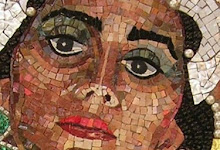
Happy Anniversary to us! Yup, it’s been exactly one year since our Aliyah! And while I didn’t eat any matzo today, I did seriously contemplate making matzo brie for breakfast to celebrate our Exodus, but it was about a million degrees outside and I do not have A/C. Tip for future olim to the Gush: whoever said you do not need A/C in the mountains LIED. Either that or the heat got to them and they are INSANE! Anyway, even with the heat, we couldn’t have spent the day in a better way. Today I greeted a life-long friend and her family at Ben Gurion airport as they made their Aliyah! We basically re-lived exactly what we did exactly a year ago, only from the other side and minus the dazed and confused, jet lagged and sleep deprived part. It was emotional and inspiring to watch other people “live the dream” as they say. I realized that it’s not just their dream, and not just the dream of millions before them that came true today. It’s Gd’s dream too. It is simply awe inspiring to watch Jewish people returning to the land of Israel. It is watching the past, present and future all at once. It’s watching the hand of Gd in action. It’s watching Jews in action – doing what they are meant to do. After re-living some of the less glamorous parts of Aliyah day # 1 (passing out on a couch or floor from exhaustion, schlepping baggage in ridiculously hot weather, learning how to live sans phone and internet, etc..) I ended my day on a different note. I spent part of my evening consoling a new friend after her visiting parent went back to the States. Its one thing to have a hard time saying goodbye to a parent, but it is another to watch your kids cry inconsolably because their grandpa or grandma or uncle or aunt or whomever they love deeply, has to go so very far away after being so close. She asked the question that we all ask ourselves at one time or another: “Is it really worth it?” The painful goodbyes, the struggles, the loneliness, etc… No one said it was going to be easy, but yes, it is so totally and absolutely worth it. If for no other reason than because Gd willing, we will never have to be that parent who says goodbye. We are here because this is the one place on Earth that a Jewish mother has a prayer that her kids and grandchildren and great-grandchildren will grow up in the same New Jersey sized Jewish state that she lives in. Plus, my kids have really cool Israeli accents now! So one year later we are still standing strong. And each new immigrant that joins us makes us stronger still.
Come Home! Let us greet you next year!






